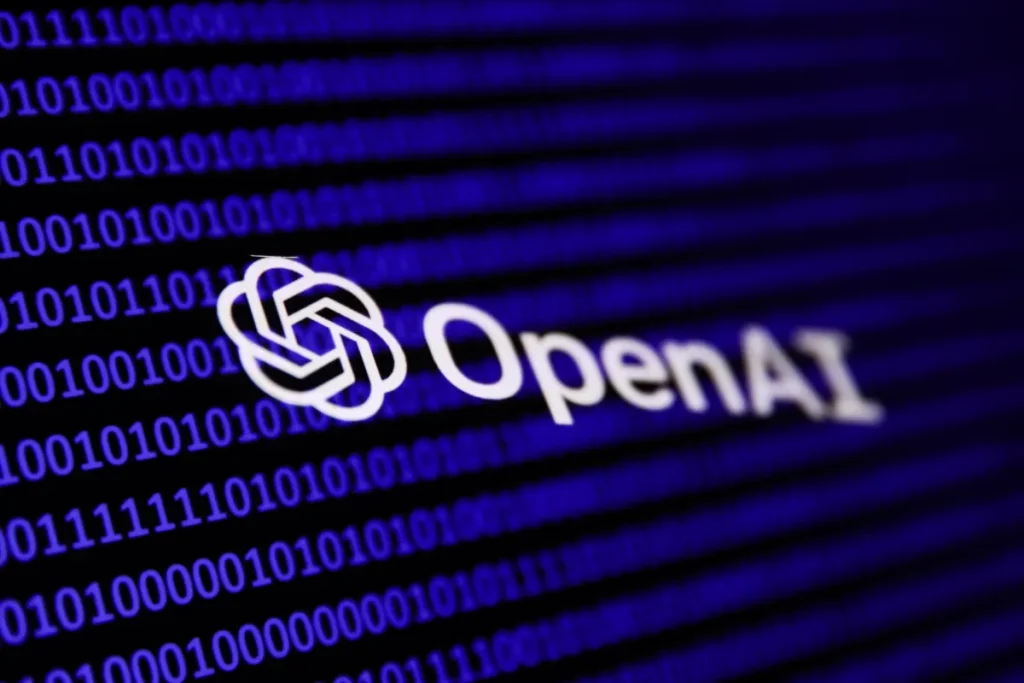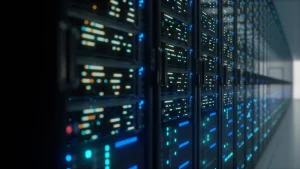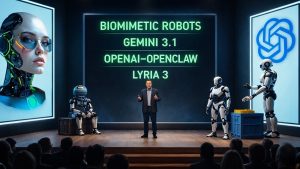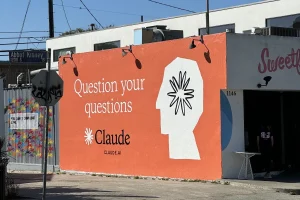OpenAI allegedly working on a new tool for generating music.

Image Credits:Jakub Porzycki/NurPhoto / Getty Images
OpenAI’s New Music Generation Tool: What We Know So Far
In an exciting development for musicians and content creators, OpenAI is reportedly working on an innovative tool that generates music using text and audio prompts. This new endeavor signals a promising step forward in the realm of artificial intelligence and music composition. According to a recent report by The Information, this capability aims to enhance various creative projects by seamlessly adding music to existing content.
Potential Use Cases for the New Tool
The implications of this new tool are vast, targeting multiple aspects of music production and content creation. One primary use case involves enhancing existing videos with original music. Imagine a filmmaker being able to input a description of their scene and receive an appropriate soundtrack that elevates the viewing experience.
Additionally, the tool could be used to add instrumental accompaniments, such as guitar tracks, to pre-recorded vocal performances. Musicians could find a new value in this technology, as it allows them to quickly augment their recordings with the right musical elements, saving time and resources.
Integration with Existing Platforms
While details about the launch timeline remain vague, there are questions about how OpenAI will position this tool in the market. Will it be a standalone product, or will it integrate into OpenAI’s existing offerings, such as ChatGPT and the video app, Sora? The latter could provide a more seamless user experience, bringing music generation directly into the workflows of content creators who are already using these platforms.
Collaboration with Academic Institutions
OpenAI is reportedly collaborating with students from the esteemed Juilliard School. These students are assisting in the annotation of scores, which serves as crucial training data for the new tool. This partnership highlights OpenAI’s commitment to producing high-quality and sophisticated music outputs. By marrying academic rigor with cutting-edge technology, OpenAI aims to create a tool that not only generates music but does so with a level of sophistication that honors traditional musical forms.
Historical Context of OpenAI’s Music Models
OpenAI is no stranger to the world of generative music models. While previous iterations of these models were developed before the release of ChatGPT, the company has since pivoted towards enhancing its audio models—primarily focusing on text-to-speech and speech-to-text functionalities.
Competitors in this space include not only tech giants like Google, but also other innovative companies such as Suno, which have been developing their own unique generative music models. As the market grows more crowded, OpenAI’s upcoming tool has the potential to stand out by combining advanced AI techniques with user-friendly interfaces that cater to both novice and experienced creators.
A Competitive Landscape
In recent years, the landscape for AI-generated music has been rapidly evolving. Companies like Google are exploring various facets of music creation, while Suno has also entered the marketplace with its own generative models. OpenAI’s attempt to provide an AI-driven solution could engage a broader audience—ranging from amateur musicians to professional content creators looking for efficient ways to integrate music into their projects.
Given the increasing accessibility of AI-driven tools, the market is ripe for innovation. OpenAI’s established reputation in the field suggests that their entry into generative music could shake up the competition, particularly if they successfully leverage their research partnerships and academic collaborations.
The Need for Training Data
One of the most significant challenges in developing music generation models is acquiring the appropriate training data. Thankfully, OpenAI’s collaboration with Juilliard students indicates a thoughtful approach to this issue. By annotating musical scores, these students will help create a database that allows the AI to learn intricate musical patterns, styles, and nuances. This data will be essential for ensuring that the generated music feels authentic, making it more useful for real-world applications.
The Future of AI in Music Production
As AI continues to seep into various industries, music production is no exception. The advent of tools capable of generating music on demand opens new doors for creativity and efficiency. Musicians and content creators can focus more on their artistic vision, rather than getting bogged down by the technical aspects of music production.
Furthermore, the rise of generative music tools reflects a broader trend toward automated creativity. As technology evolves, it raises intriguing questions about authorship, originality, and the role of human musicians in the creative process. While AI tools can streamline workflows and inspire new sounds, the unique qualities of human creativity and emotion will remain irreplaceable.
Conclusion: Anticipation and Speculation
As OpenAI gears up to introduce this groundbreaking music generation tool, anticipation builds among creators and industry observers alike. While specific details regarding its launch and features remain sparse, the potential applications are undeniably exciting. From video content creators to musicians, a diverse array of users could benefit from such technology.
By aligning with talented students at Juilliard and leveraging their vast expertise in music, OpenAI seeks to set a new benchmark for generative music tools. As we await more information, it’s clear that OpenAI is positioning itself to be at the forefront of integrating AI and music, carving out a niche that could transform how we conceive of music in the digital age.
In the coming years, the evolution of this technology may not only change the landscape of music production but also redefine our relationship with music itself. As more details emerge, it will be fascinating to observe how creators will utilize this tool and how it will shape the future of music. TechCrunch has reached out to OpenAI for further comments, and many are eager to learn more about this innovative venture.
Thanks for reading. Please let us know your thoughts and ideas in the comment section down below.
Source link
#OpenAI #reportedly #developing #generative #music #tool





